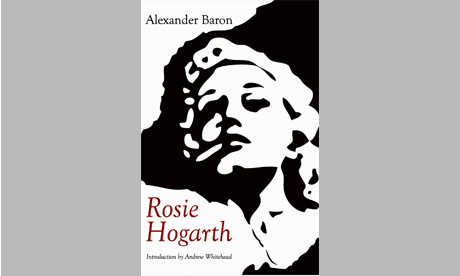Rosie Hogarth – review

Rosie Hogarth is published by Five Leaves
Lousy treatment by the authorities all too often befalls veterans of wars. But if all else fails, shell-shocked men on crutches can limp onto the pages of novels and scream out down the ages from our bookshelves.
All Quiet on the Western Front is perhaps the most famous work about conflict’s hangovers, though Heinrich Böll, that great German writer – much under-rated in this country – also had a nice line in fiction about broken soldiers’ disorientated homecomings.
Hackney author Alexander Baron’s novel Rosie Hogarth opens with soldier Jack Agass belatedly arriving back in Lamb Street, his old stomping ground near to Upper Street in Islington. The year is 1949, so the area is still hotpots and bread and butter puddings. Not an Ottolenghi cookbook or an expensive flat in sight.
War casts shadows over the novel, first published in 1951 and brought back into print last year by New London Editions.
Rosie Hogarth is, however, a multilayered novel. By turns it is a love story, a tale of redemption, a meditation on memory and a gritty socio-political drama.
Baron, who died in 1999, was a pupil at Hackney Downs School and was allied to the Communist Party in his youth but grew disillusioned with far left politics. He clearly had issues, political and personal, that he was working through when writing this.
The book’s flaws are legion – the plot is laboured, the pace saggy and aspects of the denouement frankly ludicrous – but Rosie Hogarth is still worth reading as a piece of social history that casts an eye to the Hoxton and Shoreditch of Baron’s day as well as their neighbour to the west.
As a stab at the kitchen sink realism that was starting to gain weight in the early 1950s, it’s not bad.
And so to the story. As a young man, Jack Agass lived in awe of the titular female. Lamb Street sparks reveries about the golden years of his youth – or rather year – and memories of Rosie dwell “in a dark attic” in his mind. These prompt flashbacks (among the best scenes in the book) where Jack recalls the magic of “that year”.
“That year,” writes Baron, was “like the brief season of the butterfly’s splendour”, when he and Rosie wandered together, like lovers, by moonlight. But then the war came and blew everything apart, and Rosie disappeared from Lamb Street to a flat in the West End, from where (or so it seems) she makes her living as a prostitute.
Baron’s poetry, tenderness and deep humanity shine through, obscuring the ropey aspects of this tale and saving it from oblivion.
Take, for example, this riff on memory: “Each of us becomes another being at each stage of life; that being dies, but haunts us to the grave, so that we are each followed through life by a train of ghosts, and all the ghosts are ourselves.”
Or a bit later on, where the author writes of a girl: “It was no particular man whom she was clasping; merely a man, whom she could invest with any identity that pleased her.”
Towards the end of the story, Jack’s friend admonishes him: “I wonder how much you know about people? How you judge them. Or whether you are able to judge them at all? I wonder if you’ve learned that the only way to judge people is by balancing what they give against what they take.”
Balancing acts. Calibrations and bartering. That is ultimately what this story is all about – the things we all must do if we are to get ahead and cope with life.
This is a novel with both wisdom and heart. You cannot fail to be touched by it.
Alexander Baron’s Rosie Hogarth, first published in 1951, is reprinted by Five Leaves Publications under the New London Editions imprint, £9.99.
